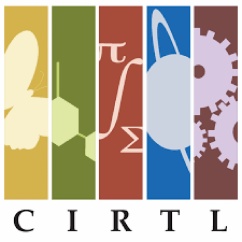CIRTL Level Scholar
Scholar Level
Please Note: To complete this CIRTL level you should be the primary/lead researcher/author of the work being disseminated.
CLT programming: Complete 5 hours of CLT workshops AND TWO External to Dalhousie dissemination of your SoTL findings, for example:
- Present your findings at a teaching and learning conference (disciplinary conference, CLT’s DCUTL, or other national/international teaching conference)
- Design and facilitate a workshop for the CIRTL network or the Teaching as Research (TAR) Capstone Series based on your TAR findings
- Publish your SoTL Project in a peer-reviewed journal
CIRTL programming: Attend between 6 – 10 hours CIRTL Network Offerings (including attending at least one TaR Capstone Series presentation) across the CIRTL Themes to supplement and enhance the work you’re doing in Dalhousie. (Please obtain proof of registration by downloading a copy of your receipt of registration and the description of each event you attend.)
Reflective Writing Documenting Your Experience: Respond to the CIRTL Reflection Questions (See Questions with Rubrics) to demonstrate how your dissemination experience and CIRTL network participation has contributed to your professional development and teaching and learning practice. Be sure to articulate the intellectual contribution of your work to your area of SoTLresearch and/or teaching discipline as part of your reflection.
NB: Each CIRTL level requires the participant to take unique CIRTL Network Offerings to fulfill this requirement.
Please note: Levels do not have to be completed in order, a participant can take any level without having completed the others. However, the levels do build upon one another so there is certainly a pedagogical advantage to taking them one after the other.
Scholar Level Reflective Questions and Assessment Rubric
- How has the dissemination experience and CLT workshop and CIRTL network participation contributed to your professional development and teaching and learning practice? (Please include reference to specific programming that you have attended and consider reflecting upon the CIRTL Core Themes: Core Themes: i) Learning-through-diversity, ii) Teaching-as-Research, iii) Learning Communities.)
- As part of your reflection, articulate both the intellectual contribution of your SoTL work to your area of teaching research and the contribution you believe it has made to your teaching or pedagogical approach(es).
- Include any artifacts of dissemination (e.g., paper draft, conference slides, workshop description).
- Download the Scholar Level rubric.
| Met Expectations | Has Not Met Expectations | Not Present | |
|---|---|---|---|
| SoTL sharing | Reflection articulates their experience sharing their SoTL work with peers, and how that experience has contributed to their professional development and teaching practice. | Reflection focuses on the experience of sharing their SoTL work with peers but does not articulate how that experience has contributed to their professional development and teaching practice. | No reflection on the experience of sharing their SoTL, and how it has impacted their professional development and teaching practice. |
| Intellectual contributions | Reflection and artifacts of dissemination are used together to outline how their SoTL work contributes to their teaching in their discipline or to teaching more broadly. | Reflection focuses on their artifacts of dissemination but does not articulate how their SoTL work contributes to their teaching in their discipline or to teaching more broadly. | No articles of dissemination submitted. |
| Clarity of reflection | Reflections are written in a narrative form and allows the reader to fully comprehend the impact of the CLT/CIRTL program and their SoTL project on their teaching practice. | Reflections are not written in a narrative form and the impact of the CLT/CIRTL program or their SoTL project on their teaching practice is difficult to understand. | Reflections are difficult to follow, and there is little to no reflection on practice incorporated. |

